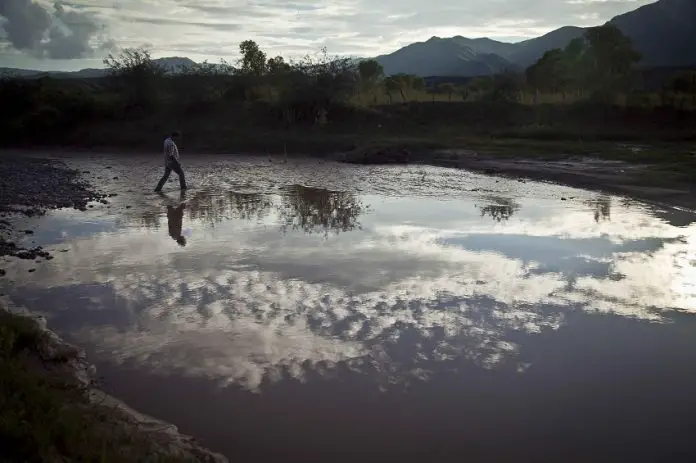Mining consortium Grupo México has again denied that a 2014 spill from its Cananea mine polluted the Sonora River, one week after the Environment Ministry (Semarnat) released a diagnostic report detailing chronic contamination from the spill.
“The remediation of the Sonora River was successful, fully adhered to the law and was supported by scientific studies and authorities,” the company insisted in a statement on Wednesday.

On Aug. 6, 2014, more than 40,000 cubic meters of toxic copper sulfate acid solution poured into the Sonora and Bacanuchi Rivers from a broken dam at Grupo México’s Buenavista copper mine in Cananea, Sonora.
An estimated 22,000 people in eight municipalities were affected by the spill, which federal officials described in 2019 as the worst environmental disaster in Mexican mining history.
Last Thursday, Semarnat released a 239-page report analyzing the cause of the spill, the resulting contamination of soil, air, water and ecosystems in the area and the effect of this on the local economy and communities.
It concludes that the spill was caused by a poorly-designed dam system, and that the 1.5 billion pesos (US $83 million) paid by the company “in no way covered the direct, indirect and cumulative effects on the population, ecosystems and economy.” It estimates the spill’s economic impact to date at 20.5 billion pesos (US $1.14 billion).

Semarnat states that local inhabitants still “face risks to health, safety and economic risks due to the presence of bioaccumulative heavy metals, in quantities well above the limits established by national and international standards.”
The report adds that Semarnat does not accept the closure of the Sonora River Basin Trust, which Semarnat and Grupo México opened in 2015 to repair the damage from the spill, but was declared closed two years later.
In its response, Grupo México dismissed the report’s findings, arguing that “they omit current sources of pollution such as illegal mining [and] the discharge of untreated sewage.” The company said that a government resolution last May confirmed that the water quality of the Sonora River had returned to its pre-spill levels, and blamed “disinformation campaigns” for the continued criticism.
In his Wednesday press conference, President López Obrador said that he will present a new action plan in the coming weeks to address the effects of the spill. He told reporters that the funds Grupo México has allocated to the environmental cleanup appear to be insufficient, and that his action plan will include a new “proposal” to the company.
“We’re resolving it, looking for options and alternatives,” he said.
With reports from La Jornada Maya, Reuters and Pie de Página
